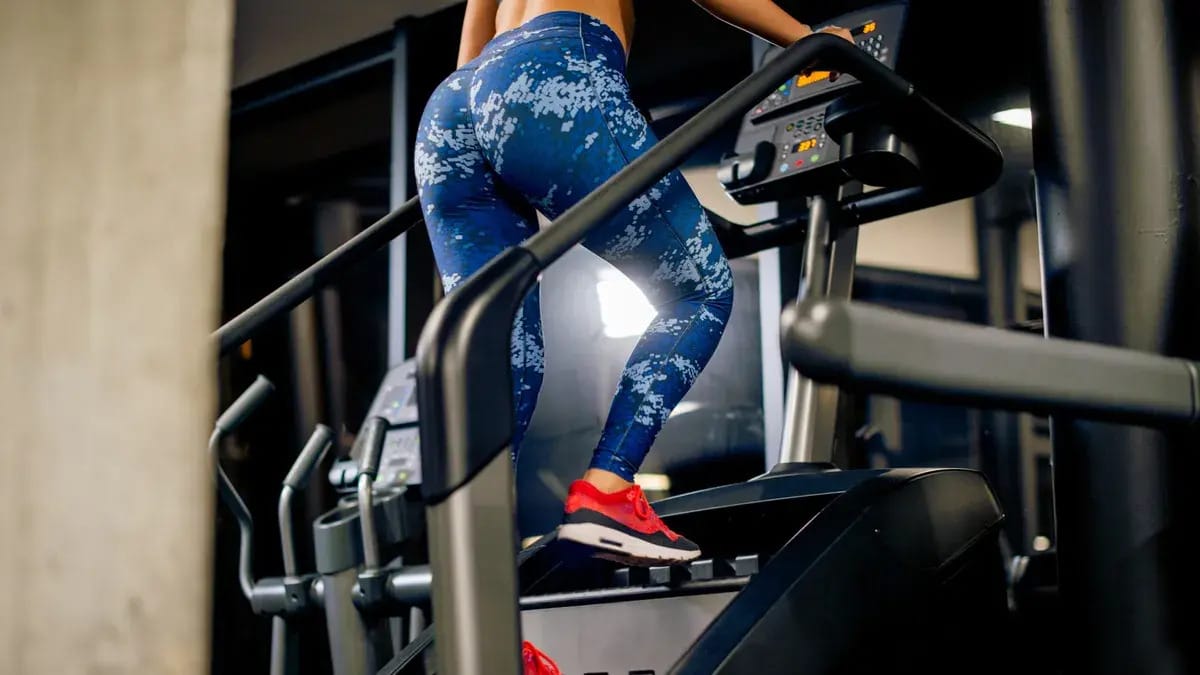Hey fitness nerds!
Thank you all {{active_subscriber_count}} of you!
The collagen supplement industry generates over $2 billion annually with promises of youthful skin and flexible joints.
But when you dig into the research that isn't funded by supplement companies, the story becomes very different. Most people are wasting money on expensive powders when simple dietary changes work better.
I spent $200 on collagen supplements last year before learning what the unbiased research actually shows.
Read 🔽 below!
💪
IN LESS THAN 10 MINUTES WE WILL COVER:
Weekly Insights:
Is there any merit behind Collagen supplement?
Article Explained Simple: Alcohol and Fitness: How Drinking Affects Muscle and Fat
Top 3 Ways to make long cardio sessions tolerable
Chinese Beef Stir Fry Recipe
Is there any merit behind Collagen supplement?

The truth about collagen supplements depends entirely on who funded the research you're reading.
The connection between collagen supplementation and actual health benefits runs much shallower than most marketing claims suggest. Your body produces collagen naturally from amino acids, making it crucial to understand whether expensive supplements provide advantages over regular protein sources.
The Funding Problem
Recent analysis of collagen studies reveals a concerning pattern. When supplement companies fund the research, studies show dramatic benefits. When independent researchers conduct the same experiments, the benefits disappear almost entirely.
A 2024 systematic review examined 23 studies involving over 1,400 participants. Studies funded by pharmaceutical companies showed significant improvements in skin hydration, elasticity, and wrinkles. However, studies not receiving industry funding showed no significant effects whatsoever.
High quality studies consistently show minimal to no benefits while lower quality studies funded by manufacturers report miraculous results. This bias makes it nearly impossible to trust most collagen research.
How Your Body Actually Uses Collagen
When you consume collagen supplements, your digestive system breaks them down into individual amino acids. These amino acids cannot be directed to specific body parts like your skin or joints as marketing claims suggest.
Your body uses these amino acids wherever they're needed most, which may have nothing to do with collagen production. The amino acids might become muscle protein, enzymes, or any other body protein your system requires.
This means collagen supplements function exactly like any other protein source. A chicken breast provides the same amino acids without the premium price tag or questionable marketing claims.
What Independent Research Shows
Unbiased studies consistently demonstrate that collagen supplements offer no significant advantages over complete protein sources. Your body requires all essential amino acids to produce collagen effectively, not just the limited amino acids found in supplements.
Foods like bone broth, meat, fish, and eggs provide superior amino acid profiles. These whole food sources include vitamins, minerals, and cofactors that support natural collagen production more effectively than isolated supplements.
The few legitimate benefits found in quality research were modest at best. Skin hydration improvements of 2-3% hardly justify spending $50-100 monthly on collagen powders when proper hydration and sun protection provide far greater results.
The Age Factor Reality
Collagen production naturally declines by about 1% annually after age 20. This decline accelerates due to sun damage, smoking, poor diet, and chronic inflammation rather than simple aging alone.
Addressing these root causes provides dramatically better results than supplementation. Regular sunscreen use, adequate protein intake, and anti inflammatory foods support collagen production more effectively than any supplement.
Studies show that lifestyle modifications like smoking cessation and UV protection prevent far more collagen loss than supplements can restore. Prevention remains more powerful than supplementation.
The Supplement Industry Marketing
Collagen marketing exploits legitimate concerns about aging while overselling minimal research benefits. Before and after photos often show lighting differences rather than actual skin improvements from supplementation.
The industry cleverly markets different collagen types for specific benefits, but your digestive system treats all collagen identically. Type I, Type II, and Type III collagen all become the same amino acid building blocks after digestion.
Marine collagen, bovine collagen, and chicken collagen provide essentially identical nutritional value despite vastly different price points. The source makes no difference once the protein is digested and absorbed.
What Actually Works
Focus your money and effort on proven strategies instead of expensive supplements. Adequate total protein intake from varied sources provides all amino acids needed for optimal collagen production.
Vitamin C, found abundantly in fruits and vegetables, plays an essential role in collagen synthesis that supplements cannot replicate. Zinc from shellfish, seeds, and nuts also supports collagen production.
Getting 7-9 hours of quality sleep, managing stress levels, and maintaining stable blood sugar support natural collagen production more effectively than any supplement ever could.
Trusted by millions. Actually enjoyed by them too.
Most business news feels like homework. Morning Brew feels like a cheat sheet. Quick hits on business, tech, and finance—sharp enough to make sense, snappy enough to make you smile.
Try the newsletter for free and see why it’s the go-to for over 4 million professionals every morning.

Fitness and health enthusiasts - We have a lot of things in store for you!
Check out busybody.io - and join the waitlist for our brand-new AI health app.
Article of the Week
Article Explained Simple: Alcohol and Fitness: How Drinking Affects Muscle and Fat
Alcohol sabotages your fitness goals through multiple pathways that most people completely underestimate.
Research shows even moderate drinking can significantly impair muscle building and fat loss progress.
Muscle Protein Synthesis Disruption
Studies demonstrate that alcohol reduces muscle protein synthesis by up to 24% even when consumed with adequate protein. This means your muscles literally cannot repair and grow effectively after workouts.
One study found that consuming alcohol post-workout decreased muscle building signals for up to 8 hours. The effect occurred even when participants consumed 20-30 grams of protein alongside the alcohol.
Hormonal Havoc
Alcohol dramatically alters hormone levels that control body composition. It decreases testosterone while increasing cortisol, creating the worst possible environment for muscle growth.
Even moderate drinking can suppress testosterone production for up to 24 hours. Higher cortisol levels promote fat storage, particularly around the midsection, creating the classic "beer belly" effect.
Fat Burning Interference
Your body prioritizes alcohol metabolism over fat burning because it considers alcohol toxic. During alcohol metabolism, fat burning essentially stops while your liver processes the toxin.
The calories from alcohol get converted to fat more readily than calories from other sources. Alcohol provides 7 calories per gram with zero nutritional value, making weight management significantly more challenging.
Recovery Impairment
Alcohol severely disrupts sleep quality, reducing the deep sleep phases crucial for muscle recovery. Poor sleep also decreases growth hormone production needed for tissue repair.
Fascinating Fact:
Research indicates that consuming alcohol can negate up to 14 days worth of training in some athletes, making occasional drinking sessions far more costly than most people realize.
We have a new 1 referral reward for all of you. This one has made my life 12 times easier and significantly improved my health. Best thing, it saves me $227 each month.
Top 3 Ways to make long cardio sessions tolerable
Long cardio doesn't have to feel like torture if you use the right psychological and practical strategies.
These techniques make time pass quickly while maintaining workout quality.

Entertainment Stacking
Save your favorite podcasts, audiobooks, or TV shows exclusively for cardio sessions.
This creates positive anticipation rather than dread for longer workouts.
Choose content that matches your exercise intensity. Engaging conversations work well for moderate pace while high energy music suits intense intervals.
Create anticipation by starting compelling content only during cardio. This psychological trick makes you actually look forward to longer sessions.
Interval Psychology
Break long sessions into smaller mental chunks rather than focusing on total duration.
A 60 minute session becomes twelve 5-minute segments.
Use different intensity levels to create natural break points.
Alternate between moderate and higher intensities to prevent mental fatigue and physical monotony.
Set micro goals throughout the session. Celebrate completing each segment rather than only acknowledging the full workout completion.
Environmental Variety
Change your location regularly to prevent boredom and maintain engagement.
Outdoor routes, different gym equipment, or various indoor locations keep sessions interesting.
Time outdoor cardio with pleasant weather or beautiful scenery.
Natural environments make exercise feel less effortful while providing mental health benefits beyond fitness.
Use virtual reality or interactive apps that gamify the cardio experience.
Technology can transport you mentally while your body does the physical work.
AI You’ll Actually Understand
Cut through the noise. The AI Report makes AI clear, practical, and useful—without needing a technical background.
Join 400,000+ professionals mastering AI in minutes a day.
Stay informed. Stay ahead.
No fluff—just results.
Chinese Beef Stir Fry Recipe (makes 4 servings)
Quick weeknight dinner with authentic flavors and perfect macros for active lifestyles.
This became my go-to meal when I wanted takeout flavors without the excess oil and sodium. Ready in under 20 minutes with simple ingredients.
This recipe was created in 2 minutes with the BusyBody App. Click the button for free access to the app.

Macros per serving
Total Calories: 340 kcal
Protein: 28 g
Carbohydrates: 18 g
Sugars: 12 g
Fat: 15 g
The Ingredients
500g beef sirloin, sliced thin
2 tablespoons soy sauce (low sodium)
1 tablespoon cornstarch
2 tablespoons vegetable oil
1 red bell pepper, sliced
1 green bell pepper, sliced
1 medium onion, sliced
3 cloves garlic, minced
1 tablespoon fresh ginger, grated
2 tablespoons oyster sauce
1 tablespoon rice vinegar
1 teaspoon sesame oil
2 green onions, chopped
1 teaspoon red pepper flakes (optional)
Instructions
Combine sliced beef, 1 tablespoon soy sauce, and cornstarch in a bowl. Toss to coat evenly and let marinate 10 minutes.
Heat 1 tablespoon vegetable oil in a wok or large skillet over high heat until smoking.
Add beef in single layer and cook 2-3 minutes without stirring until nicely browned. Remove beef and set aside.
Add remaining oil, then bell peppers and onion. Stir fry for 3-4 minutes until vegetables are crisp-tender.
Add garlic and ginger, cooking for 30 seconds until fragrant.
Return beef to pan and add oyster sauce, remaining soy sauce, and rice vinegar. Toss everything together for 1-2 minutes.
Remove from heat, drizzle with sesame oil and garnish with green onions and red pepper flakes.
Serve immediately over rice or enjoy on its own for lower carbs.
Go from AI overwhelmed to AI savvy professional
AI will eliminate 300 million jobs in the next 5 years.
Yours doesn't have to be one of them.
Here's how to future-proof your career:
Join the Superhuman AI newsletter - read by 1M+ professionals
Learn AI skills in 3 mins a day
Become the AI expert on your team
Make your dream of working online a reality and start a newsletter - join beehiiv for free and don’t pay any renewal fees until you grow your subscriber base >2500 subscribers.
I’ve personally tried plenty of other platforms, and Beehiiv is hands down the best and easiest to use.





